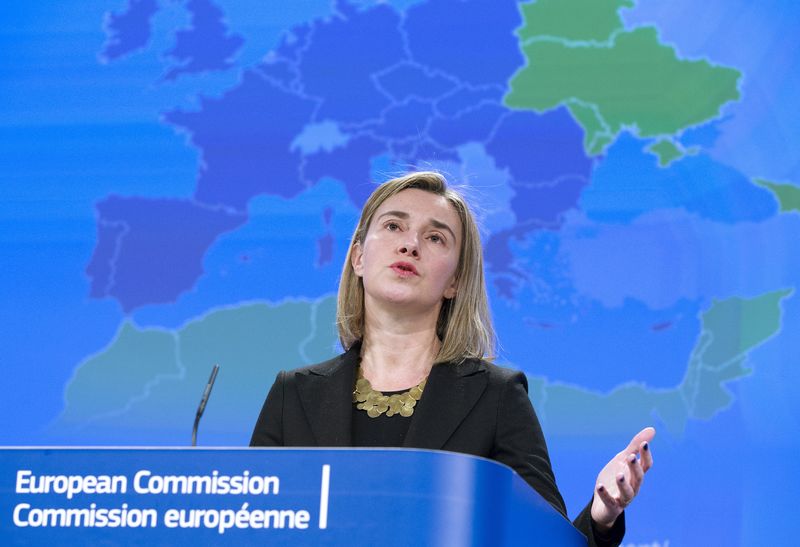By Adrian Croft
BRUSSELS (Reuters) - The European Union launched a review of the way it handles neighbouring nations on Wednesday after its policy of offering closer ties to former Soviet republics led it unwittingly into confrontation with Russia.
The EU's executive Commission also began work on a new immigration policy, which will offer expanded opportunities for legal migration as a way of reducing a wave of illegal migrants that has led to thousands of deaths in the Mediterranean sea.
The European Neighbourhood Policy was introduced in 2003 to enable the EU to develop better relations with all the countries that surround it, including former Soviet republics as well as North African and the Middle Eastern states.
However, its offer of a cooperation and free trade agreement to Ukraine in 2013 helped spark a political crisis there that toppled pro-Russian President Viktor Yanukovich and led indirectly to Russia annexing Crimea and war in eastern Ukraine.
That in turn triggered Western sanctions on Russia and the worst East-West crisis since the Cold War.
Some critics accused Brussels of being naive and failing to take account Russian sensitivities over EU expansion.
EU foreign policy chief Federica Mogherini said self-criticism would be part of the review. But she denied that the EU's overtures to eastern Europe were confrontational.
"It was very clear from the beginning, it is in any case very clear now, that the door of European cooperation is always open, also for Russia," she told a news conference.
An EU discussion document, drawn up by officials to help kindle the internal debate, said the EU should recognise that some countries were keener than others on close cooperation and the bloc should offer a range of alternatives.
In some cases, working with one country will require the European Union to cooperate with "the neighbours of the neighbours," it said -- a clear reference to Russia.
The EU's existing policy disappoints countries such as Ukraine, Georgia and Moldova because it makes no promise that they might one day be considered for EU membership and there was no indication that Brussels was ready to change that stance.
While the neighbourhood review is expected to take four months to complete, the Commission said its new migration strategy would be ready by mid-May.
Southern European countries led by Italy are clamouring for EU action to help them cope with tens of thousands of African and Middle East migrants crossing from war-torn Libya.
At least 10 North African migrants died when their rubber boat overturned in the Mediterranean on Wednesday. Last month, more than 300 people died in a single week.
The EU's new policy will expand possibilities for legal migration and allow people to apply for asylum without risking their lives at sea. That could go down badly in some EU countries where hostility to migration runs high.

Migration Commissioner Dimitris Avramopoulos said the EU planned to appoint immigration attaches in some overseas offices to allow people to apply for asylum in their own countries.